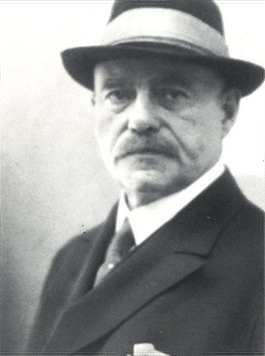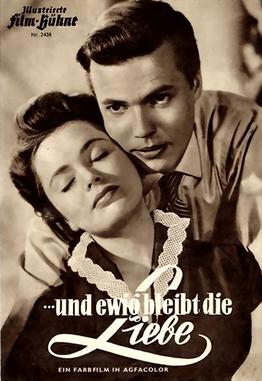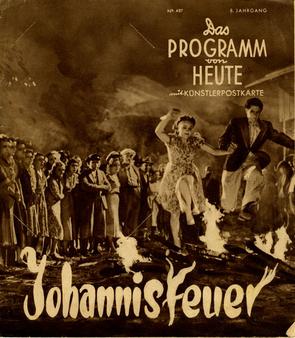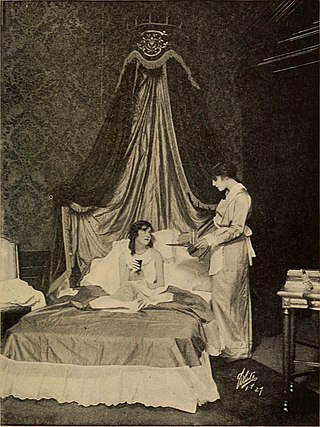Related Research Articles

The Merchant of Venice is a play by William Shakespeare, believed to have been written between 1596 and 1598. A merchant in Venice named Antonio defaults on a large loan on behalf of Bassanio, his dear friend, provided by a Jewish moneylender, Shylock.

Hermann Sudermann was a German dramatist and novelist.

Edward Brewster Sheldon was an American dramatist. His plays include Salvation Nell (1908) and Romance (1913), which was made into a motion picture with Greta Garbo.

Cyrano de Bergerac is a play written in 1897 by Edmond Rostand. The play is a fictionalisation following the broad outlines of Cyrano de Bergerac's life.

Talley's Folly is a 1980 play by American playwright Lanford Wilson. The play is the second in The Talley Trilogy, between his plays Talley & Son and Fifth of July. Set in an boathouse near rural Lebanon, Missouri in 1944, it is a romantic comedy following the characters Matt Friedman and Sally Talley as they settle their feelings for each other. Wilson received the 1980 Pulitzer Prize for Drama for the work. The play is unlike Wilson's other works, taking place in one act with no intermission, set in ninety-seven minutes of real time, with no set change.

Cyrano is a musical with a book and lyrics by Anthony Burgess and music by Michael J. Lewis.
The Good Person of Szechwan is a play written by the German dramatist Bertolt Brecht, in collaboration with Margarete Steffin and Ruth Berlau. The play was begun in 1938 but not completed until 1941, while the author was in exile in the United States. It was first performed in 1943 at the Zürich Schauspielhaus in Switzerland, with a musical score and songs by Swiss composer Huldreich Georg Früh. Today, Paul Dessau's composition of the songs from 1947 to 1948, also authorized by Brecht, is the better-known version. The play is an example of Brecht's "non-Aristotelian drama", a dramatic form intended to be staged with the methods of epic theatre. The play is a parable set in the Chinese "city of Sichuan".

The Song of Songs is a 1933 American pre-Code romantic drama film directed by Rouben Mamoulian, starring Marlene Dietrich as a naive German peasant named Lily who moves to Berlin and suffers a considerable amount of heartache. This particular version of the film was based on the 1908 novel The Song of Songs by Hermann Sudermann. The novel's original title, which translates to English as "The High Song", does indeed refer to the Song of Solomon, which is often described in German as "Das Hohe Lied der Liebe". However, that is not the only possible inference. "HoheLied" has been translated as "ode" "hosannas" "praises" and used in purely secular as well as religious contexts. Most telling in this case is the use in German of the entire phrase to describe the "great song of love" or "ode to love" in Paul's First Epistle to the Corinthians. This creates a double layer of meaning to the title of the novel in German, one that could not be duplicated in an English rendition.
Heimat (Home) is an 1893 play by the German dramatist Hermann Sudermann. The play, either in the original German or in translations, was commonly also known as Magda, the name of the heroine. It was thought by some to be the most widely known and the most successful drama of the end of the 19th century.

Lily of the Dust is a 1924 American silent drama film directed by Dimitri Buchowetzki, starring Pola Negri, produced by Famous Players–Lasky, and distributed by Paramount Pictures. This movie was based on the 1908 novel The Song of Songs by Hermann Sudermann and the 1914 Broadway play The Song of Songs by Edward Sheldon.

Heimat is a 1938 German historical drama film directed by Carl Froelich and starring Zarah Leander, Heinrich George and Ruth Hellberg. The film's melodramatic storyline portrays the return of a leading singer to her hometown, where her father wishes her to settle down and marry. It is based on the 1893 play Heimat by Hermann Sudermann.

Grete Berger was an Austrian-German stage and film actress whose career came to an end following the rise of the Nazi Party in 1933. Berger was murdered at Auschwitz concentration camp in 1944 shortly after her arrival.

Love is Forever is a 1954 West German drama film directed by Wolfgang Liebeneiner and starring Karlheinz Böhm, Ulla Jacobsson and Ingrid Andree. The film is based on the play Fires of St. John by Hermann Sudermann.

Midsummer Night's Fire or St. John's Fire is a 1939 German drama film directed by Arthur Maria Rabenalt and starring Anna Dammann, Ernst von Klipstein, and Gertrud Meyen. The film is based on the play Fires of St. John by Hermann Sudermann. The title refers to Saint John's Eve.
The Excursion to Tilsit is a 1917 collection of short stories or novellas by the German writer Hermann Sudermann. Its German title is Litauische Geschichten, which means "Lithuanian stories". The book consists of four stories set in rural Lithuania in the mid 19th century. It was published in English in 1930, translated by Lewis Galantière.
The Cats' Bridge is an 1889 novel by the German writer Hermann Sudermann. It was published in English in 1898 as Regina, or The Sins of the Fathers, translated by Beatrice Marshall.

The Song of Songs is a 1914 play written by Edward Sheldon, based on the 1908 German novel Das hohe Lied by Hermann Sudermann, which had been translated to English under the title The Song of Songs. Producer A. H. Woods staged the play on Broadway at his Eltinge 42nd Street Theatre, where it was a box office success. The play was the basis of several movie and radio adaptations.
Honour is an 1889 play by the German writer Hermann Sudermann. It tells the story of the conflicts and love affairs between two families, one wealthy and one poor. When the wealthy father has an affair with a daughter in the poor family, her brother challenges the rich man to a duel, only to be laughed off.

Irena Turkevycz-Martynec was born in Brody, Kingdom of Galicia and Lodomeria, and came to Canada, to Winnipeg, in 1949. She was a Prima donna in the Lviv Theatre of Opera and Ballet, and performed in Paris, Vienna, Berlin, Prague, and many other European cities during her long and storied career.
Käthe Hannemann, also Käthchen Hannemann, was a German stage actress.
References
- ↑ Goldman, Emma (1914). The Social Significance of the Modern Drama. Boston: Richard G. Badger. pp. 80–86.
- ↑ "Verfilmungen" (in German). Hermann Sudermann Stiftung. Retrieved 2016-01-26.